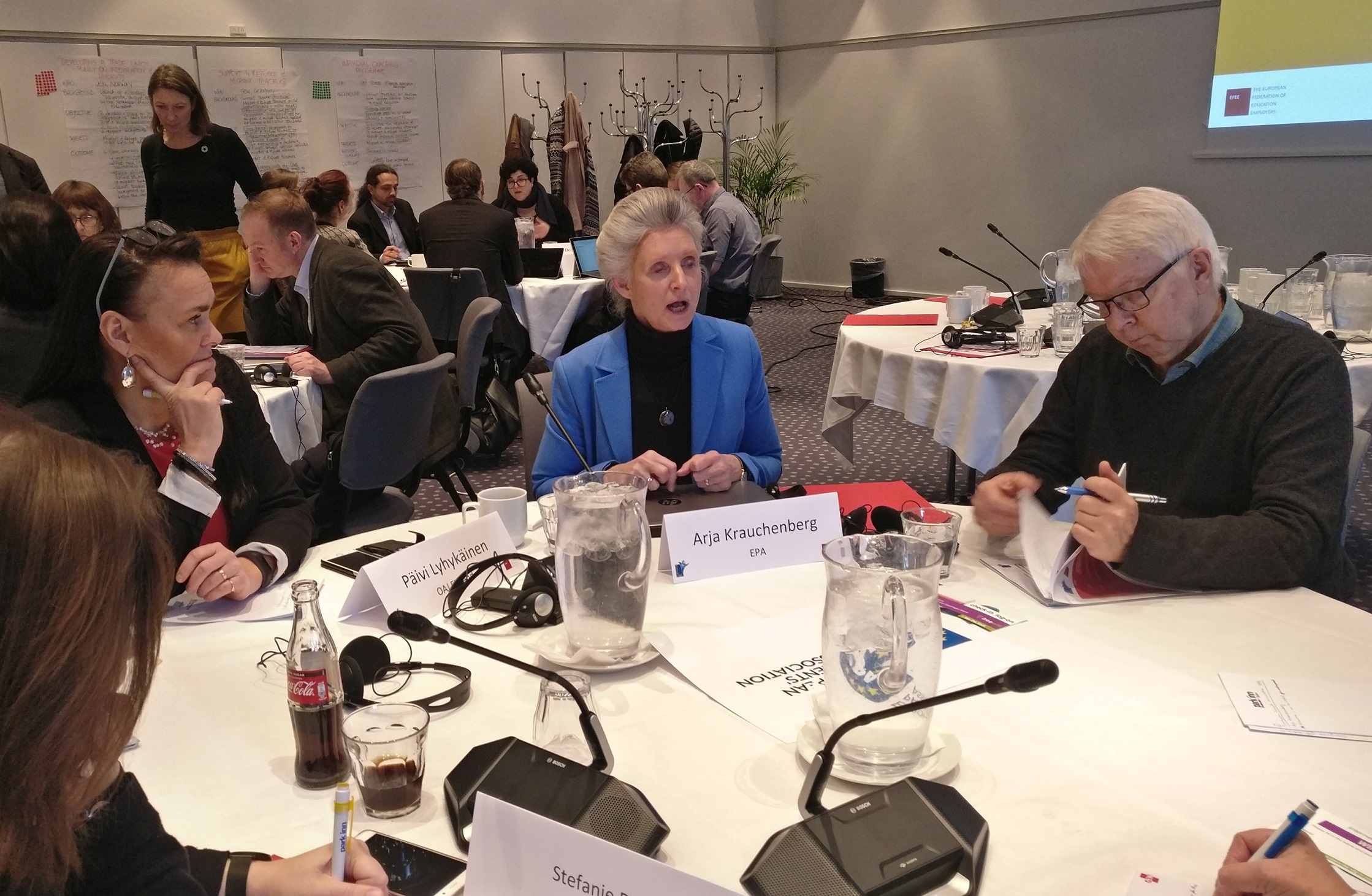Promoting migrant and refugee educational inclusion by learning together
Published:
On 14-15 March 2019, social partners from Belgium, Denmark, Estonia, Finland, Germany, Iceland, Ireland, Norway, Sweden and UK met in Copenhagen to discuss effective policies and measures to address educational inclusion of migrants and refugees. Despite the right to education is internationally recognised to all children, irrespective of their migration status, according to the UN Convention on the Rights of the Child, barriers remain for refugees, asylum seeking and undocumented children in today’s Europe. Education personnel and their unions, and education employers across Europe are taking the responsibility to mobilise, to study, to share the challenges and to shape solutions together, through the European and national social dialogue.
In the wake of the sudden influx of migrants, refugees and asylum seekers on European shores and mainland in 2015 and 2016, divisive narratives portraying migration as an overwhelming problem threatening economic sustainability, cultures and identities, and way of life, have given rise to new forms of racism and xenophobia, and are posing tensions on European democracies. Teachers, trainers and school leaders, as well as education employers are often on the frontline to identify and to respond to students’ needs: in a classroom, in the school community as well as in their neighbourhood and in society. It is often on them to ensure a successful educational experience to all students in the schools, regardless of their status. As recalled during the 2-day meeting, a paradigm shift is the starting point of any general or targeted action, based on the assumption that “it is not about ‘migrant’ and ‘local’ students, it is about children and learners in ‘our’ schools”.
Even if barriers to access still remain to be overcome, passing the door-step of a school is not guarantee of quality learning. Nation-wide and localised teacher shortages in the most disadvantaged areas, lack of training on multi-cultural competences, psycho-social support to deal with students having experienced trauma, second language teaching skills and teaching in mother tongue, workload and insufficient resources to approach educational needs individually are but some of the obstacles faced daily.
By sharing national, regional and local experiences, strategies and good practices, education trade unions and employers kicked off a process aimed at setting quality frameworks and standards, as well as and providing guidelines to all personnel and employers in the sector, through the European Sectoral Social Dialogue in Education and based on evidence gathered across Europe from professor Bunar (Stockholm University) and Eurydice. Through a process of ‘Learning Together’, education social partners recognised the need for synergies with other actors and for interventions that combine educational policies with other areas, all aiming at reducing inequalities, marginalisation and isolation of migrants and refugees. Parents, civil society organisations, social partners from other sectors and students’ unions are key in this respect as part of a learning community which recognises the specific needs for support of migrant and refugee students but also acknowledges and values their own resources and experiences.
Concluding the meeting, Mike Jennings, ETUCE Bureau Member stated that: “The encouraging commitment seen here, and the fruitful discussions give significant credibility to social partners’ efforts. They can identify how to address this challenge and have the responsibility to pressure decision-makers into taking action to shape solutions together. It is not an easy way, and it will require time, openness and respect for all realities to move towards sustainable and long-term solutions”.
- To know more about the joint ETUCE-EFEE Project: “Sectoral Social Partners in Education Promoting the Effective Integration of Migrants and Refugees in Education”
- The second training seminar for social partners in education is to be organised in Cyprus on 18-19 June
- The final conference of the project is to be organised in Brussels, on 14-15 October